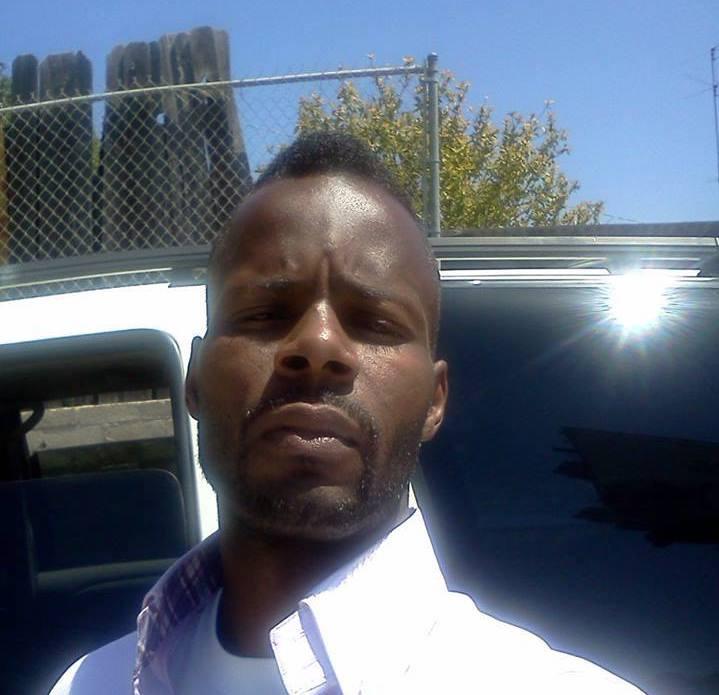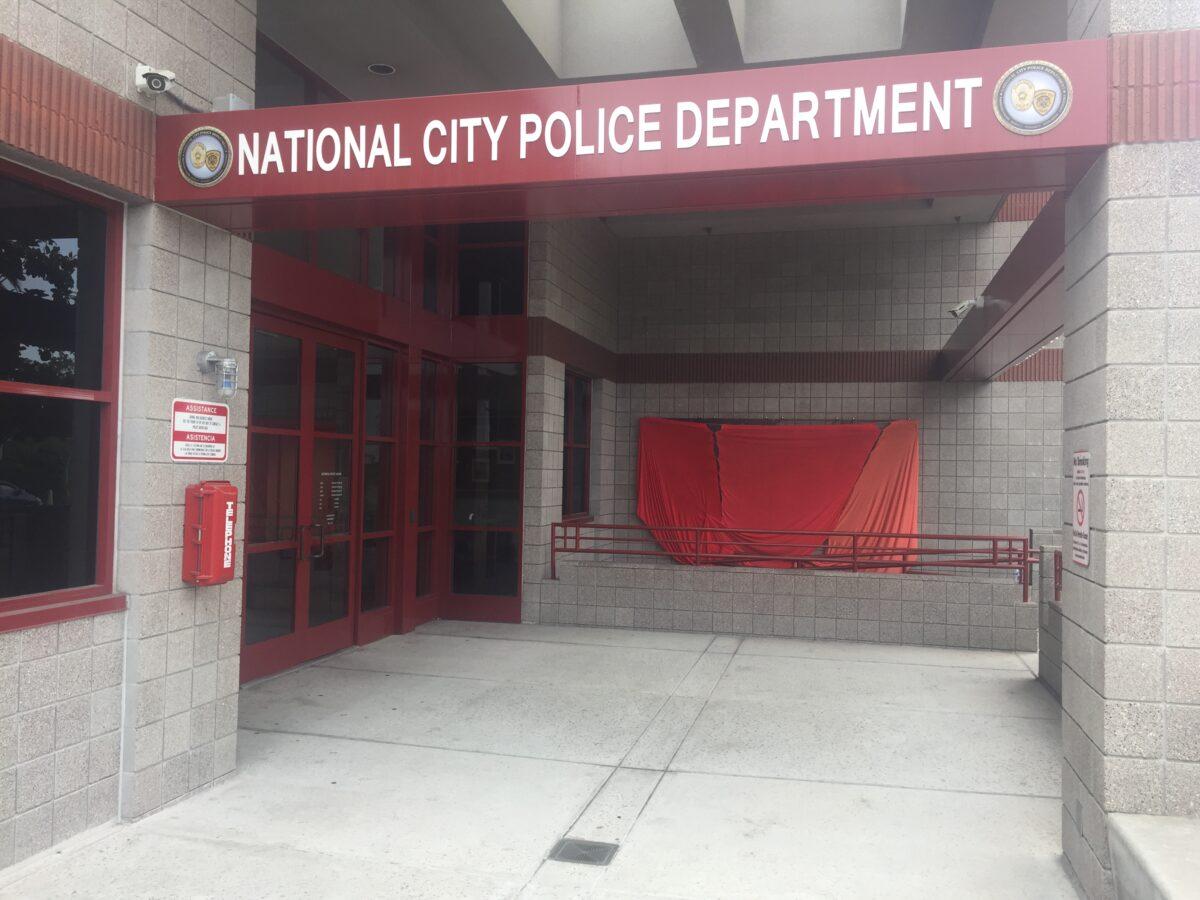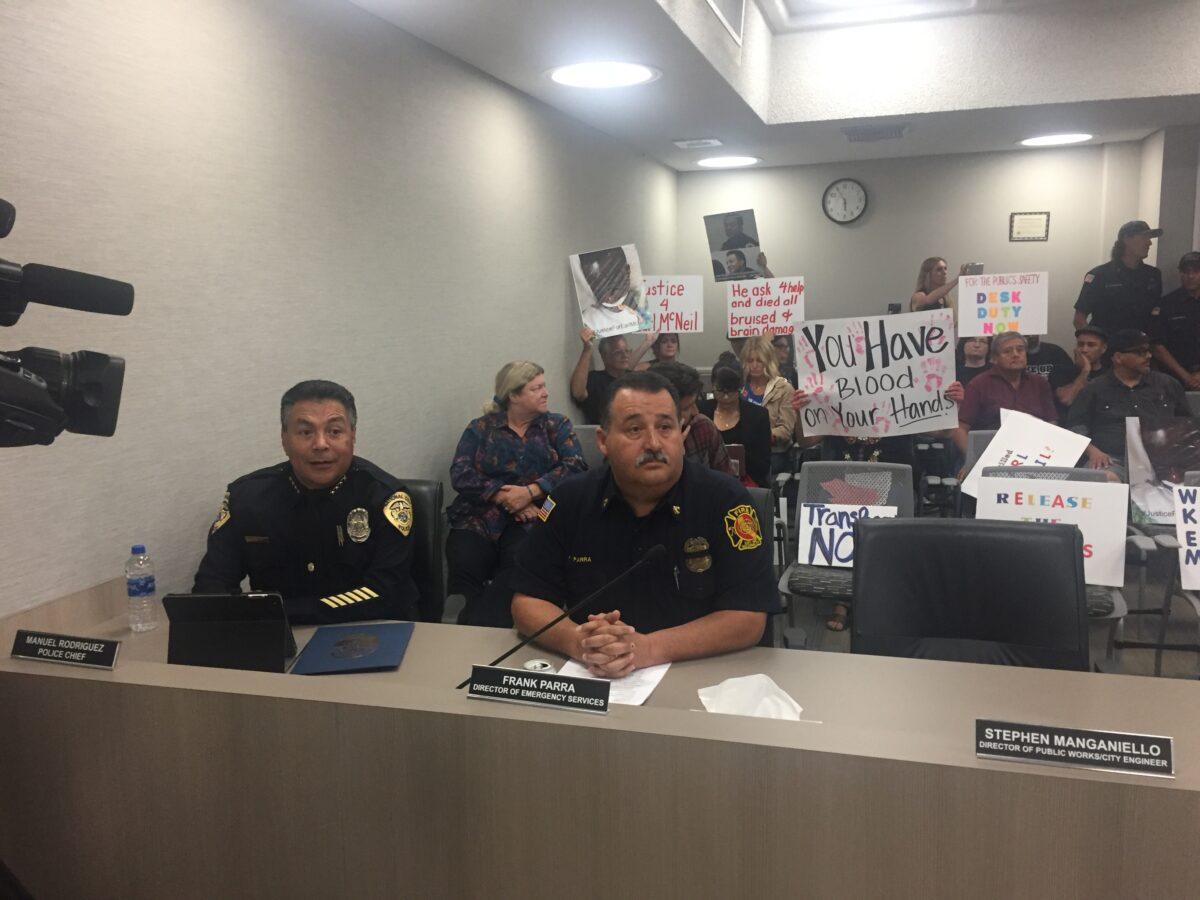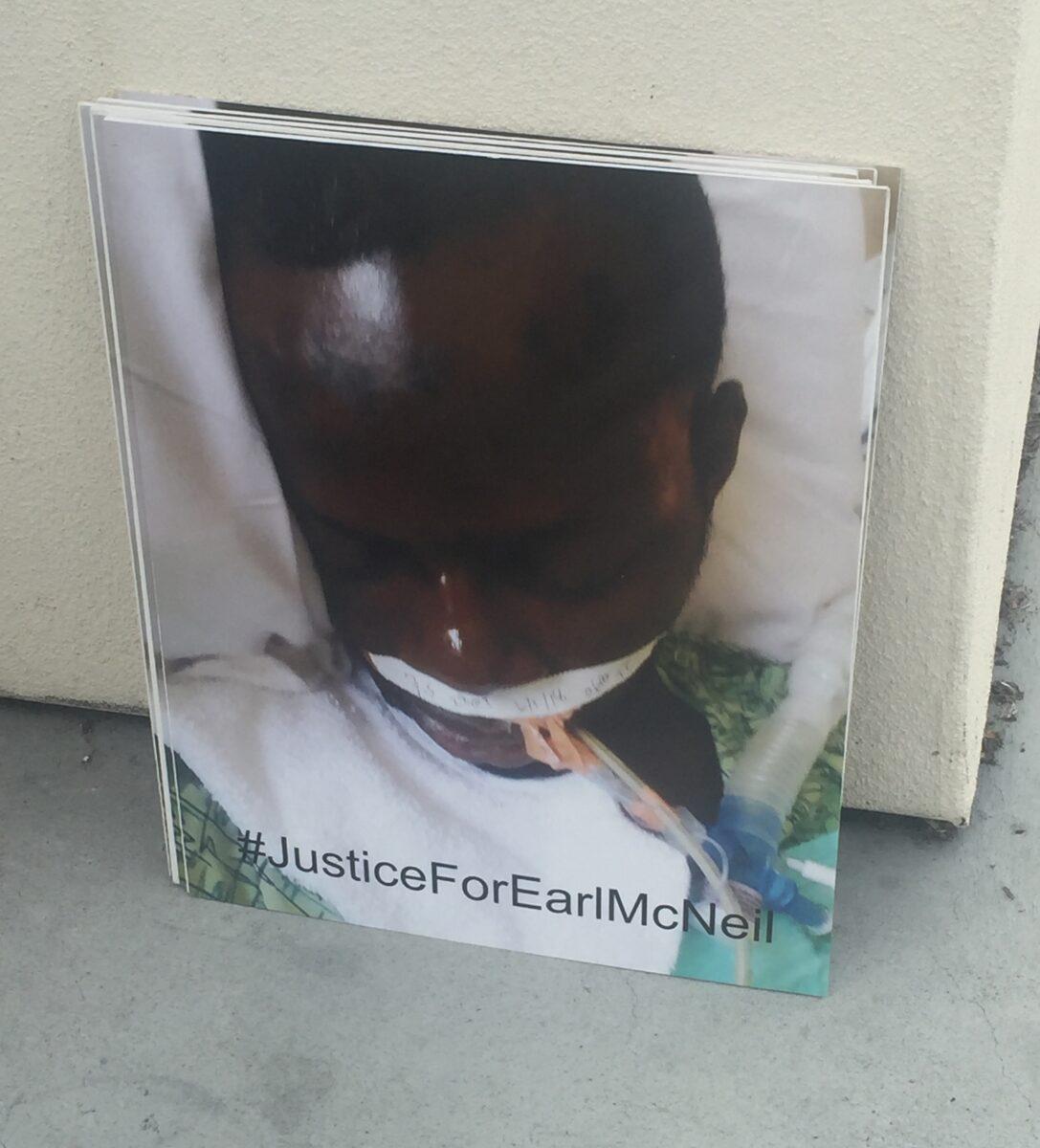A Distressed Man Came to a Police Station Looking for Help. Hours Later, He Was In a Coma.
Earl McNeil’s family is demanding answers from the National City, California, police department.

In the early morning hours of Saturday, May 26, Earl McNeil, a 40-year-old African American man with a history of mental health issues, walked up to the telephone attached to the front of the police department building in National City, California. According to police, McNeil told the dispatchers on the other end of the phone that he was high, had a warrant out for his arrest, and “wanted to kill Jesus.”
The National City Police Department is housed in an imposing concrete building on National City Boulevard, the main thoroughfare of the low-income, predominantly Latinx city that sits just to the south of San Diego, and a little more than 10 miles from the U.S.-Mexico border. It was a few miles from where McNeil had been living, according to his relatives. Prompted by the conversation with dispatchers, officers met McNeil outside the police station, and soon after arrested him on suspicion of being under the influence of drugs.
When McNeil was taken out of the station several hours later, he was secured in the stiff nylon blanket and restraints known by police officers as the “WRAP.” Officers put him in the back of a police car to check him into San Diego Central Jail for processing. But by the time he arrived at the jail, McNeil was in medical distress, and he died 16 days later.
His death has sparked an outcry from family members and community activists who have demanded more information from the police about the circumstances of his death.
An unexplained death
McNeil’s family is desperate for answers about what happened on May 26. According to a spokesperson from the San Diego Sheriff’s Department, McNeil was “rejected” for booking by the sheriff’s department, and remained in the custody of the police department. “The Sheriff’s Department cannot comment on what may or may not have transpired while he was in the custody of NCPD,” the spokesperson told The Appeal. After he was rejected by central booking, paramedics were called to assist him—and McNeil lost consciousness soon after they arrived, according to a statement released by the police department.

But the police have released limited details about the incident, despite a growing public outcry—no body camera footage, no names of officers involved in McNeil’s arrest, no surveillance footage from the precinct itself. The results of McNeil’s autopsy have yet to be released to the family, although the police chief told the San Diego Union-Tribune that preliminary information from investigators present during the autopsy found that there was no trauma on McNeil’s body.
McNeil’s family isn’t so sure. Photos they took while he was in the hospital show bruises to his head and lacerations to his body that they believe were caused at some point during the hours he was in National City police custody.
In the statement released in the days following McNeil’s death, the police said that McNeil was “intentionally hurting himself” during the trip to the county jail, despite being confined to the WRAP. The police did not respond directly to the family’s allegations or to a request for comment from The Appeal.
Tammy Davis, McNeil’s aunt, said she had to leave a meeting with the police chief, Manuel Rodriguez, because he kept smiling, and he refused to apologize for or elaborate on what happened to McNeil when he was in custody.
“There was a smile on the chief’s face and he was shaking his head. Every question we asked, he couldn’t give an answer,” Davis said. “He had a smile on his face from the time we started the meeting to the time we left the meeting.” Rodriguez did not respond to requests for comment.
At a City Council meeting on June 19, Rodriguez listened to comments from community members with a visible smirk on his face, enraging advocates and McNeil’s family members (Rodriguez disputes that he was smirking and instead says he was just trying to keep a “calm” face.) At the same City Council meeting, Tasha Williamson, a community activist who has been working with the McNeil family, was arrested after she went over her allotted speaking time and refused to leave the podium.
She said the police’s assertion that he hurt himself is ridiculous. “I was horrified by their statements because we had actually gone to the hospital the day they pulled the plug and saw his body,” Williamson said. She wants to know why they won’t release footage from his time in custody. “It just feels like a cover-up. It feels like they think we’ll go away.”
All body camera footage captured by the National City police is accessible by the San Diego district attorney’s office. The police department’s policy for officer-involved shootings is not to release the video “until the district attorney’s independent review of the incident has been completed and the findings have been provided to the law enforcement agency involved.” The police department could not confirm if the same policy applies to surveillance footage, or whether there’s a different policy for incidents involving arrestees injured while in custody.
Last month in Sacramento, police released body camera video of a man who died in police custody just a week after his death, and released extensive surveillance footage within the month.

On Tuesday, more than a month after McNeil’s death, protesters interrupted another City Council meeting and questioned Rodriguez directly after the council announced a recess. Amid chants of “release the tapes,” Rodriguez defended his department’s actions, saying the police still “have the trust of the community,” and that the investigation was ongoing.
Two members of the National City City Council, Mona Rios and Alejandra Sotelo-Solis, refused to recess with the rest of the council to protest the city’s failure to release the footage to the community. The following day, protesters flooded the chambers again and a vote to put the investigation on the agenda failed by a vote of 2-2.
Who was Earl McNeil?
Born in 1977, Earl McNeil was raised in San Diego. He was close with his family, Davis, his aunt told The Appeal. “He was always the man of the hour,” she said. Davis raised McNeil after his mother died when he was 12. She said he liked to play cards and would help put up gazebos for family barbecues.
According to his aunt, those good times were mixed with episodes of mental distress, during which he would often contact local police (although she said he had always contacted the San Diego Police Department, not National City’s). He had been diagnosed as bipolar at a young age, she said, and would need to be placed in psychiatric care for periods of time while the manic episodes passed. He had come to rely on local police and EMTs who were familiar with his mental health situation, she explained, to steer him into care, not custody.
But McNeil also maintained contacts with local law enforcement for other reasons. For years, The Appeal has learned, he was a jailhouse informant for the San Diego district attorney’s office regarding a high-profile 2003 double homicide that resulted in a San Diego man named James Carter receiving multiple life sentences in 2011. The San Diego DA’s office wrote in court filings that Carter and McNeil belonged to the same gang in the early 2000s. (McNeil’s family declined to address whether they knew he was an informant.)

In 2004, according to court documents, McNeil shared information about the murders with investigators while he was at the same jail as Carter, who had been booked on an unrelated charge. During the interview, McNeil acknowledges that he had no firsthand knowledge about the murders and says that his information came from a conversation he had with Carter after the shooting and before either of them were incarcerated. During the 2011 trial, McNeil testified about Carter for a full day, despite objections by the defense that he had given conflicting statements to investigators about what he knew. He later recanted his testimony to a private investigator working on behalf of Carter’s family. In an audio clip played for The Appeal, a man who identifies himself as McNeil claims he lied on the witness stand.
“I would tell them I was lying. I lied,” McNeil says on the recording. “I was coerced. I was in a pretty desperate situation. Prison is crazy, man.”
San Diego District Attorney Summer Stephan was a prosecutor in the district attorney’s office at the time of the Carter prosecution and the use of McNeil as a jailhouse informant. Her office declined to comment on whether McNeil was an informant. According to a spokesperson, the office will review the results of the police investigation once it is complete.
Over the past six months, eight officer-involved cases have been resolved by the DA’s office, and Stephan has cleared police officers in all of them, including the killing of Jonathon Coronel, an unarmed 24-year-old who officials say was shot at 16 times after he removed his shirt and wrapped it around his hand during a confrontation with police.
McNeil’s family has retained a lawyer and is considering its next steps. “Right now I don’t trust the police department,” Davis said. “They haven’t been in touch with me, neither the chief or the mayor. We’re just in the dark right now.”
